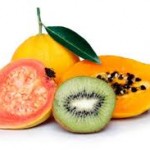Together, these five network antioxidants provide a powerful defense against free radicals and help to keep our bodies youthful and healthy.
CoQ-10 is an essential part of the energy production process in every cell in our body. It works by converting food into energy that the cells can use for growth and repair. As we age, our levels of CoQ-10 naturally decline, which can lead to a decrease in energy production and an increase in oxidative stress. This is where supplementation with CoQ-10 can be beneficial. Research has shown that taking CoQ-10 supplements can improve cardiovascular health, reduce inflammation, and even help with neurological conditions such as Parkinson’s disease.
Vitamin E is another fat-soluble antioxidant that plays a crucial role in protecting our cells from damage caused by free radicals. It works by neutralizing lipid peroxyl radicals that attack cell membranes and cause them to break down. Vitamin E has been shown to have anti-inflammatory properties as well as being beneficial for skin health.
Vitamin C is one of the most well-known water-soluble antioxidants. It plays a crucial role in boosting our immune system by stimulating the production of white blood cells that fight infections and diseases. Vitamin C also helps protect against oxidative stress caused by pollution, stress, or unhealthy lifestyle choices such as smoking or excessive alcohol consumption.
Glutathione is perhaps less well-known than some of the other antioxidants on this list but it is no less important. Glutathione acts as a detoxifier within the body by binding with toxins and heavy metals so they can be eliminated safely through urine or feces rather than causing damage within our cells. Glutathione levels decline naturally with age but there are ways to boost them through diet or supplementation.
Finally, Alpha Lipoic Acid (ALA) is unique among this group because it is both fat-soluble AND water-soluble which means it can work throughout every cell in the body. ALA helps to regenerate other antioxidants within the body such as Vitamin C and Glutathione which means they can continue to do their job of neutralizing free radicals for longer.
So how can you get more of these network antioxidants into your diet? The answer is through a variety of foods and supplements. Some of the best food sources for CoQ-10 include fatty fish such as salmon or mackerel, organ meats like liver or kidney, and nuts and seeds like peanuts or sesame seeds. Vitamin E is found in high amounts in nuts and seeds such as almonds, sunflower seeds, and hazelnuts as well as leafy greens like spinach or kale.
Vitamin C is abundant in citrus fruits like oranges, lemons, or grapefruit but also in other fruits such as kiwi fruit, strawberries, papaya, and pineapple. Glutathione can be found naturally in foods such as avocados, broccoli, garlic bulbs but it’s also available through supplementation using precursors that boost its production within your body.
Supplementation is another effective way to ensure you are getting enough network antioxidants into your diet. A daily multivitamin supplement that includes vitamins E & C along with CoQ-10 would be a good place to start if you’re concerned about your antioxidant levels. There are also specific supplements available that contain higher doses of each individual antioxidant if you have a particular health concern that requires targeted support.
In conclusion: our bodies need network antioxidants to keep us healthy both inside and out; by eating a varied diet rich in colorful fruits & vegetables along with lean protein sources we will provide all the necessary nutrients needed for our body’s unique defense mechanisms against oxidative stress caused by free radicals over time; however there may still be gaps we need filling via supplements depending on age/lifestyle factors – always consult with a qualified professional before making any changes!
